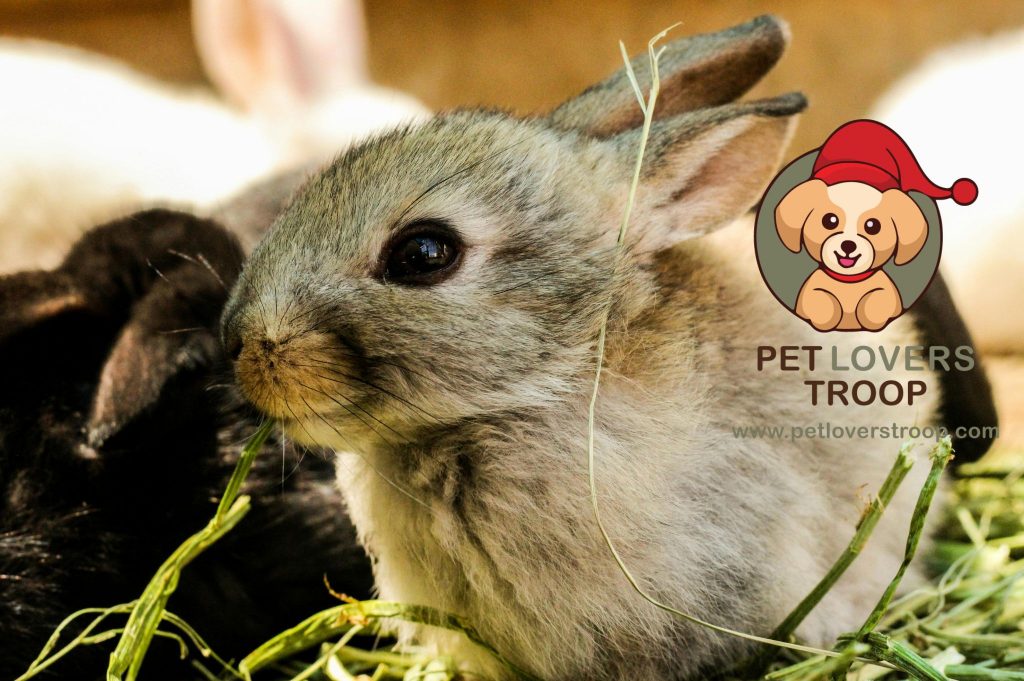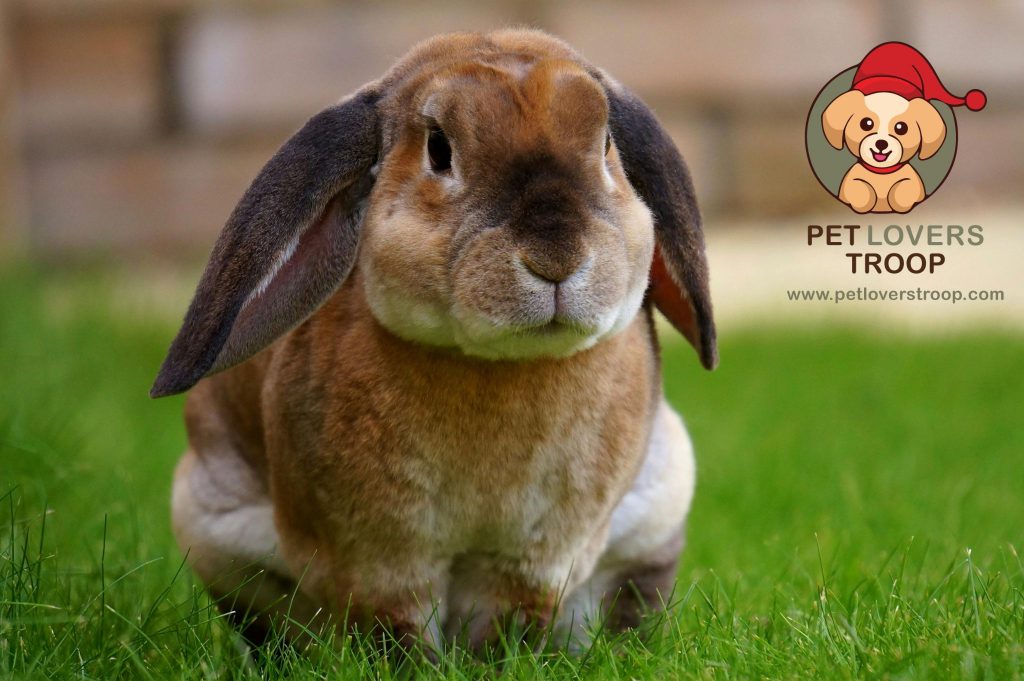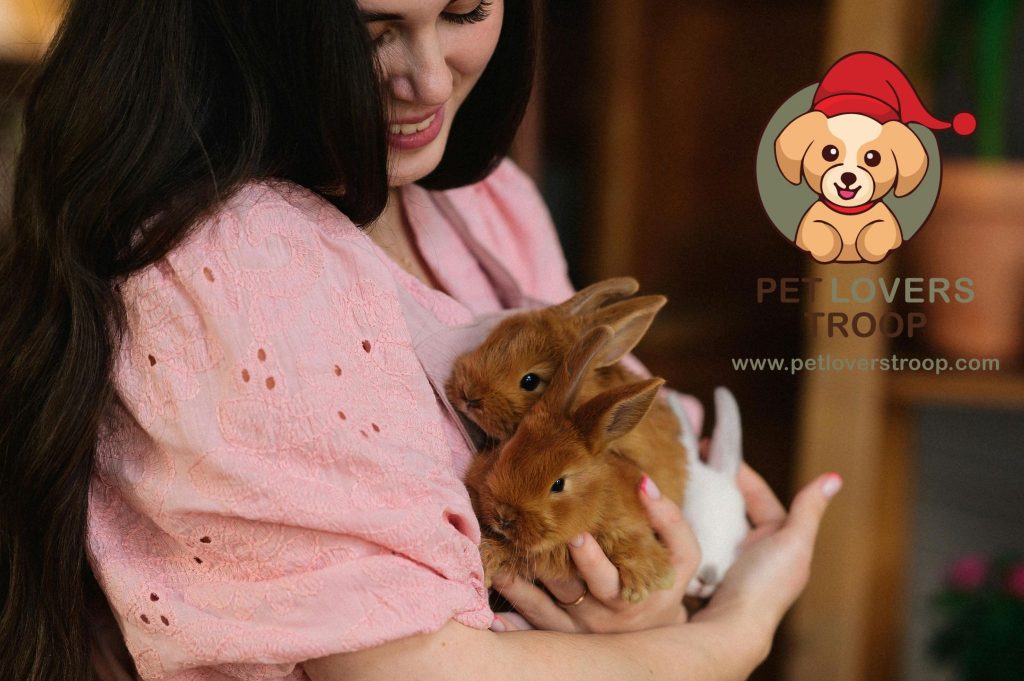Bringing a pet into your home is a joyful experience, filled with anticipation and excitement. However, it also comes with responsibilities, especially when considering the lifespan of the pet you’re about to welcome into your life. Rabbits, with their twitching noses, soft fur, and playful hops, are often seen as cute, low-maintenance pets. But don’t be fooled—owning a rabbit is a long-term commitment that requires careful consideration and preparation.
Rabbits are not just animals to be kept in a hutch in the backyard; they are intelligent, social creatures that thrive in a loving environment. Understanding the lifespan of a rabbit is crucial in ensuring that you are prepared for the long-term responsibility of caring for one. This blog will dive deep into the lifespan of rabbits, both wild and domesticated, explore the specific life expectancies of popular breeds, and provide valuable tips on how to maximize your pet rabbit’s life expectancy.
Have a look at: A Beginner’s Guide to Rabbit Care Essentials. How to Keep Your Little Partners Happy and Comfortable?
The Lifespan of a Rabbit: More Than Just Numbers
When we talk about the lifespan of a rabbit, we’re not just talking about a number. We’re talking about the years of companionship, joy, and memories that you’ll share with your pet. On average, rabbits live between 7 to 10 years, but with the right care, some can live well into their teens. Rabbits are creatures of habit and thrive on consistency, so providing them with a stable and loving environment is key to ensuring they live long and healthy lives.

Average Lifespan of a Rabbit
The average lifespan of a rabbit can vary depending on several factors, including breed, genetics, and care. While some rabbits may live just a few years, others can live for over a decade. Understanding the factors that influence the lifespan of a rabbit will help you make informed decisions and provide the best care possible.
Wild vs. Domesticated: The Lifespan of a Rabbit in Different Environments
The environment in which a rabbit lives plays a significant role in its lifespan. The lifespan of a rabbit in the wild is typically much shorter than that of a domesticated rabbit. Wild rabbits face numerous challenges that can drastically reduce their life expectancy, while domesticated rabbits benefit from the protection and care provided by their owners.
Lifespan of a Rabbit in the Wild
Wild rabbits, such as the cottontail rabbit, have a much harder life compared to their domesticated counterparts. The lifespan of a cottontail rabbit is usually between 1 to 2 years. This short lifespan is due to the numerous dangers they face in the wild, including predators, harsh weather conditions, and a lack of consistent food sources. Wild rabbits must constantly be on high alert, which can lead to stress and health issues, further shortening their lives.
Lifespan of a Domesticated Rabbit
In contrast, the lifespan of a domesticated rabbit can be significantly longer. Domesticated rabbits benefit from a safe environment, regular meals, and access to veterinary care, all of which contribute to a longer and healthier life. On average, a domesticated rabbit can live between 7 to 10 years, with some even reaching 12 to 15 years. The key to ensuring a long life for a domesticated rabbit lies in providing proper care, a balanced diet, and a loving environment.
Exploring the Lifespan of Popular Rabbit Breeds
If you’re considering bringing a rabbit into your home, it’s important to understand that different breeds have different life expectancies. Here’s a closer look at the lifespan of some of the most popular rabbit breeds:
1. Lifespan of a Dutch Rabbit
The lifespan of a Dutch rabbit is typically between 5 to 8 years, although with excellent care, some Dutch rabbits have been known to live up to 10 years or more. Dutch rabbits are known for their calm temperament and distinctive appearance, with a characteristic white blaze on their face. These rabbits are a popular choice for families due to their friendly nature and manageable size.
2. Lifespan of a Rex Rabbit
The lifespan of a Rex rabbit is generally between 8 to 10 years. Rex rabbits are easily recognizable by their plush, velvety fur, which feels like no other rabbit breed. They are also known for their friendly and curious personalities. With a balanced diet and regular veterinary care, Rex rabbits can live a long and healthy life, bringing joy to their owners for many years.
3. Lifespan of a Holland Lop Rabbit
The lifespan of a Holland Lop rabbit is usually around 7 to 10 years. Holland Lops are one of the most popular rabbit breeds, thanks to their small size, floppy ears, and friendly disposition. These rabbits are full of energy and require regular interaction and exercise to stay happy and healthy. Holland Lops can be delightful companions for a decade or more with proper care.
4. Lifespan of a Cottontail Rabbit
As previously mentioned, the lifespan of a cottontail rabbit in the wild is significantly shorter, typically only 1 to 2 years. While cottontail rabbits are not commonly kept as pets, their life expectancy highlights the challenges that wild rabbits face daily. Predators, disease, and environmental factors all contribute to their shorter lifespan.
Read more on: French Lop Rabbits 101 – Understanding Their Distinctive Features, Temperament and Personality

What Affects the Lifespan of a Pet Rabbit?
Several factors can influence the lifespan of a pet rabbit, including genetics, diet, environment, and medical care. By understanding these factors, you can take proactive steps to ensure your rabbit lives a long and healthy life.
1. Genetics and Breed
Genetics plays a significant role in determining the lifespan of a rabbit. Some rabbit breeds are naturally predisposed to certain health conditions, which can impact their life expectancy. For example, smaller rabbit breeds, such as the Holland Lop, tend to live longer than larger breeds. It’s important to research the specific breed you’re interested in and be aware of any genetic predispositions that may affect your rabbit’s health.
2. Diet: The Cornerstone of a Rabbit’s Health
A balanced diet is crucial for a rabbit’s health and extends the lifespan of a rabbit. Rabbits have delicate digestive systems that require a diet high in fiber to function properly. The foundation of a rabbit’s diet should be fresh hay, which helps wear down their continuously growing teeth and keeps their digestive system moving smoothly. In addition to hay, rabbits should be fed a variety of fresh vegetables, with a small portion of high-quality pellets to provide essential nutrients.
Avoid feeding your rabbit sugary treats or foods high in carbohydrates, as these can lead to obesity and other health problems. Always provide fresh water, and ensure your rabbit has access to food and water at all times.
3. Environment: A Safe and Stimulating Home
The environment in which your rabbit lives can have a significant impact on the lifespan of a rabbit. Rabbits are sensitive creatures that require a clean, safe, and stimulating environment to thrive. Indoor rabbits generally live longer than outdoor rabbits because they are protected from predators, extreme weather conditions, and environmental hazards.
If you keep your rabbit indoors, make sure it has plenty of space to move around, play, and exercise. Rabbits are highly active animals and need regular physical activity to stay healthy. Provide your rabbit with toys, tunnels, and hiding places to keep them mentally stimulated and prevent boredom.
If you keep your rabbit outdoors, ensure that its hutch is secure, weatherproof, and predator-proof. Outdoor rabbits should also have access to a shaded area to protect them from the sun and heat. Always bring your rabbit indoors during extreme weather conditions.
4. Medical Care: The Importance of Regular Vet Visits
Regular veterinary care is essential for ensuring your rabbit remains healthy throughout its life. Rabbits should be spayed or neutered to prevent reproductive cancers, which are common in unaltered rabbits. Spaying and neutering also help reduce aggressive behavior and prevent unwanted litters.
Vaccinations and parasite control are also important aspects of rabbit care. Rabbits can be prone to certain diseases, such as myxomatosis and rabbit hemorrhagic disease (RHD), both of which can be fatal if not prevented. Regular check-ups with a rabbit-savvy vet will help catch any potential health issues early, allowing for prompt treatment and a better outcome.

Tips for Extending the Lifespan of Your Pet Rabbit
As a responsible pet owner, there are several steps you can take to ensure your rabbit lives a long, happy, and healthy life:
1. Prioritize a Balanced Diet
Feeding your rabbit the right diet is one of the most important factors in ensuring its longevity. Make sure to provide unlimited access to fresh hay, which should make up the majority of their diet. A variety of leafy greens, such as kale, parsley, and romaine lettuce, should also be included. Offer a small portion of high-quality pellets to provide additional nutrients, but avoid overfeeding, as this can lead to obesity.
Remember, not all vegetables are safe for rabbits. Avoid feeding them iceberg lettuce, as it can cause digestive issues, and stay away from foods like onions, garlic, and potatoes, which can be toxic to rabbits.
2. Create a Safe and Enriching Environment
Rabbits need a safe, clean, and enriching environment to thrive. Whether your rabbit lives indoors or outdoors, ensure they have plenty of space to move around and exercise. Rabbits are natural diggers and hiders, so providing them with tunnels, digging boxes, and hideaways will keep them mentally stimulated.
If your rabbit lives indoors, rabbit-proof your home to prevent accidents. Keep electrical cords, toxic plants, and small objects out of reach. Consider setting up a designated play area where your rabbit can safely explore and interact with toys.
Have a look at: Pet-Friendly DIY Projects: Creating Customized Accessories for Your Pets
3. Ensure Regular Veterinary Care
Take your rabbit to the vet for regular check-ups to catch any health issues early. Spaying or neutering your rabbit can prevent reproductive cancers and reduce aggressive behavior. Also, ensure your rabbit is up-to-date on vaccinations and parasite control. Regular dental check-ups are also important, as dental issues are common in rabbits due to their continuously growing teeth.
4. Provide Social Interaction
Rabbits are social animals that require regular interaction with their owners or other rabbits. Spending time with your rabbit each day will help strengthen your bond and keep them happy. If possible, consider getting a companion rabbit, as rabbits are naturally sociable and often thrive when they have a friend.
When introducing a new rabbit, do so gradually and under supervision to ensure they get along. Rabbits can form strong bonds with one another, but they may also be territorial, so patience is key when introducing new companions.
5. Monitor Your Rabbit’s Health
Rabbits are prey animals and have evolved to hide signs of illness to avoid appearing weak to predators. This means that by the time a rabbit shows obvious signs of illness, they may already be quite sick. It’s important to monitor your rabbit’s behavior, eating habits, and litter box usage closely. Any changes in these areas could indicate a health problem that requires immediate attention.
Common signs of illness in rabbits include a loss of appetite, lethargy, changes in bowel movements, and difficulty breathing. If you notice any of these symptoms, contact your veterinarian right away, it will help you extend the lifespan of a rabbit.
Also check out: Understanding Gastric Stasis in Rabbits. How to treat a sick rabbit at home?
Common Health Issues That Affect Rabbit Lifespan
Understanding the common health issues that can affect rabbits is crucial for ensuring a long and healthy life. Here are some conditions to be aware of:
1. Dental Problems
Rabbits’ teeth continuously grow, and if not properly worn down, they can develop dental issues such as malocclusion, where the teeth do not align properly. This can cause pain and difficulty eating. Providing a diet high in hay helps keep their teeth in good condition, as chewing hay naturally wears down their teeth.
2. Gastrointestinal Stasis
Gastrointestinal stasis is a serious condition where the digestive system slows down or stops. This can be caused by a poor diet, stress, or dehydration. Symptoms include a lack of appetite, reduced fecal output, and lethargy. Immediate veterinary care is required if your rabbit shows signs of gastrointestinal stasis, as it can be life-threatening if not treated promptly.
3. Respiratory Infections
Rabbits are prone to respiratory infections, often caused by bacteria like Pasteurella. Symptoms include sneezing, nasal discharge, and difficulty breathing. Respiratory infections can be serious, so it’s important to seek veterinary care if your rabbit shows any signs of respiratory distress.
4. Reproductive Cancers
Unspayed female rabbits are at a high risk of developing uterine cancer. Spaying your rabbit can significantly reduce this risk and increase her lifespan. Spaying also prevents other reproductive issues, such as ovarian and mammary tumors.
The Emotional Commitment: More Than Just a Pet
Owning a rabbit is not just a long-term financial and time commitment; it’s also an emotional one. Rabbits are sensitive, intelligent animals that form strong bonds with their owners. They rely on you for companionship, care, and love. Before bringing a rabbit into your home, consider whether you’re ready for the emotional responsibility of caring for a pet that can live for over a decade.
Rabbits are creatures of routine and thrive on consistency. They will become accustomed to your presence, your voice, and even your daily schedule. The bond you form with your rabbit can be incredibly rewarding, but it requires time, patience, and dedication.
Preparing for the Future: Caring for Senior Rabbits
As your rabbit ages, its needs will change. Senior rabbits may require special care, such as softer bedding, easier access to food and water, and more frequent vet visits. Arthritis, dental issues, and decreased mobility are common in older rabbits, so it’s important to adapt their environment to accommodate these changes.
Planning for these changes in advance can help ensure your rabbit continues to live comfortably in its later years. Providing a warm, quiet space for your senior rabbit to rest, along with regular veterinary care, will help them enjoy their golden years.
Final Thought
Rabbits are wonderful pets that can bring joy, companionship, and love into your life for many years. Understanding the lifespan of a rabbit and the factors that influence it will help you provide the best possible care for your furry friend. Whether you choose a Dutch rabbit, Rex rabbit, Holland Lop rabbit, or another breed, remember that owning a rabbit is a long-term commitment that requires careful planning and preparation.
With the right care, your rabbit can live a long, happy life as a cherished member of your family. The lifespan of a rabbit is a testament to the bond you’ll create—a bond that will be filled with love, trust, and countless moments of joy.
So, if you’re considering bringing a rabbit into your home, make sure you’re ready for the journey ahead. It’s a journey filled with hopping, nibbling, and binkies (those joyful leaps that rabbits do when they’re particularly happy). And most importantly, it’s a journey that will bring you and your rabbit a lifetime of happiness.
